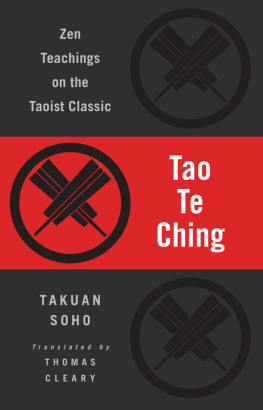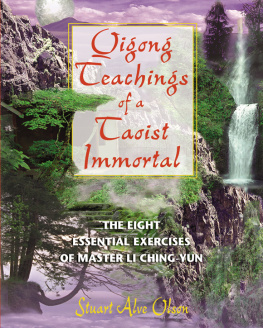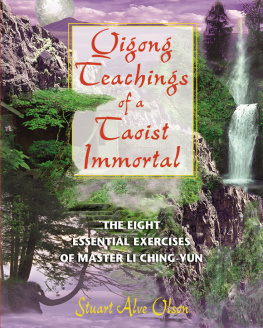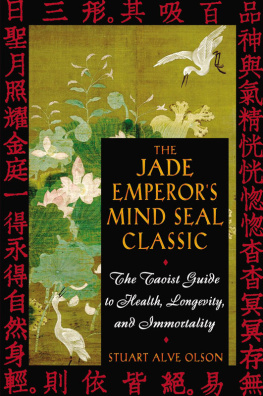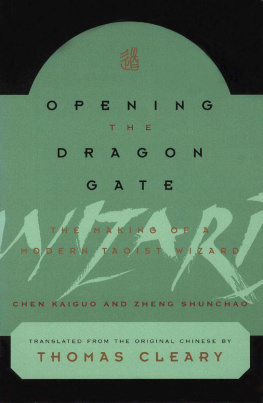Liezi - The Book of Master Lie
Here you can read online Liezi - The Book of Master Lie full text of the book (entire story) in english for free. Download pdf and epub, get meaning, cover and reviews about this ebook. year: 2011, genre: Art. Description of the work, (preface) as well as reviews are available. Best literature library LitArk.com created for fans of good reading and offers a wide selection of genres:
Romance novel
Science fiction
Adventure
Detective
Science
History
Home and family
Prose
Art
Politics
Computer
Non-fiction
Religion
Business
Children
Humor
Choose a favorite category and find really read worthwhile books. Enjoy immersion in the world of imagination, feel the emotions of the characters or learn something new for yourself, make an fascinating discovery.

- Book:The Book of Master Lie
- Author:
- Genre:
- Year:2011
- Rating:5 / 5
- Favourites:Add to favourites
- Your mark:
- 100
- 1
- 2
- 3
- 4
- 5
The Book of Master Lie: summary, description and annotation
We offer to read an annotation, description, summary or preface (depends on what the author of the book "The Book of Master Lie" wrote himself). If you haven't found the necessary information about the book — write in the comments, we will try to find it.
The Book of Master Lie — read online for free the complete book (whole text) full work
Below is the text of the book, divided by pages. System saving the place of the last page read, allows you to conveniently read the book "The Book of Master Lie" online for free, without having to search again every time where you left off. Put a bookmark, and you can go to the page where you finished reading at any time.
Font size:
Interval:
Bookmark:
The Book of Master Lie
A Taoist Classic
Translated and Annotated
by Thomas Cleary
2009 Thomas Cleary
All Rights Reserved
Contents
II. The Yellow Emperor
III. King Mu of Zhou
IV. Confucius
V. Questions of Tang
VI. Effort and Destiny
VII. Yang Zhu
VIII. The Tally of the Teaching
The Book of Master Lie, ( Liezi /Lieh-tzu) is a Taoist classic of uncertain origin and history, named for an obscure individual of unproven identity or existence. Records of its constitution and transmission are controversial.
And yet the book of Master Lie is one of the greatest works of cognitive art and educational science that has ever been produced. If it has been undervalued, that is precisely because of its excellence.
In Taoist terms, all of this is quite understandable. The primary classic of Taoism states, Great achievement seems to be missing something, but its use is inexhaustible. Great fulfillment seems empty, but its function is endless. Great straightforwardness seems inarticulate, great skillfulness seems clumsy, great surplus is kept out of sight.
The historical existence and identity of Master Lie remain matters of some dispute, but that is also a natural consequence of the way of life this literary figure represents, that of the so-called real human being.
Over time, the term real human came to be used for honorific titles assigned by Chinese courts to famous Taoists of the past, and in some contexts for imaginary people on another plane of existence, but it originally meant an uncorrupted person with the full range of natural human potential intact, available, and functional.
According to Taoist lore, real human beings were difficult to find, being hidden by design in the texture of life. They had associations, but no organizations. They were prudent about open display of those dimensions of themselves that extended beyond conventional concepts of human potential. This practice of maintaining low profiles was adopted for self-development as well as self-preservation, and also to protect members of ordinary society from transfer of worldly greed and aggression into the domain of spiritual seeking.
The ways of the real people were obscure in comparison to the dazzling displays of court wizards who exploited the desires of emperors to be immortal, or cult leaders who organized their own governments and militias and founded their own dynasties. According to the Taoist classic Chuang-tzu (Zhuangzi),
Real people in ancient times were just and dutiful in their behavior, without being partisan. They seemed to be lacking, but did not accept anything. They were used to being alone, but were not rigid about it. They expounded their openness, without embellishment. They were so mellow they seemed to be joyful. They acted when there was no choice. They were calm and collected to such a depth as to enhance their health, and gracious to such a degree as to stabilize their character. They were upright, appearing to be like society, yet transcendent and impossible to constrain. They were remote, as if they liked isolation; they were so simple they forgot to speak. They made law into a body, made courtesy into wings, made knowledge into timing, made character into an example to follow.
Apart from a few firm historical traces, like traditional descriptions of its namesake the fragmentary legends of the transmission of the book of Master Lie are essentially suggestive. Attributed to a sage of the 4 th century BCE., it is alleged to have been in vogue at the imperial court for a time in the early 2 nd century BCE, then disappeared into the private sector. Recovered in a scattered state and reconstituted by a famous scholar in the late 1 st century BCE, the legend continues, it was edited and reduced from twenty chapters to its current eight chapters.
There is no news of this text in tradition for several hundred years after that, until the last decades of the 4 th century CE, when the first known commentator, writing about 370, prefixes an account of his own grandfathers recovery and reconstruction of a scattered text some fifty years earlier, around 320. As this commentary is the earliest firm historical evidence of the work, some scholars have attributed the book of Master Lie itself to this 4 th century commentator.
Disappearing from the light of history for hundreds of years again, the book of Master Lie reemerges in the 8 th century, when Emperor Xuanzong of the cosmopolitan Tang dynasty (619-906), an admirer of Taoism, calls for submission of Taoist texts to the throne and establishes an academic degree in Taoism for aspirants to civil service. At this point the book of Master Lie appears once again, and is designated a classic in 742, to be one of four Taoist classics for the official curriculum. The other designated classics are the Tao Te Ching ( Daodejing ), the Chuang-tzu ( Zhuangzi ), and the Wen-tzu ( Wenzi ).
The Book of Master Lie has also remained a hidden treasure for reasons of cultural conditioning and political patronage. One such factor surrounds the acknowledged but ill-defined Buddhist element in this allegedly Taoist text. While borrowed Buddhist terminology abounds in Taoist literature, the Book of Master Lie represents Buddhist teachings in purely native Chinese terms.
The reputation of the Book of Master Lie was nevertheless affected by its association with Buddhism. Successive waves of xenophobia branded Buddhism as a foreign religion in China, more than once resulting in book-burnings. The Book of Master Lie was declared mixed with Buddhism in the very first commentary on the text in the 4 th century CE, when translation of Buddhist scriptures into Chinese was proceeding apace, and non-Chinese people were taking over part of China.
In the form it is known in today, the text of The Book of Master Lie was allegedly reconstituted after the disintegration of the monumental Han Dynasty (206 BCE-220 CE). While the Han order was failing, changes in culture proceeded apace. New Taoist cults emerged, some sectors of the aristocracy retreated into alchemy, immortalism, or antinomianism, and Buddhism flowed into China from South and Central Asia. The rich amalgam of liberated thought that this period produced is abundantly reflected in the Book of Master Lie .
Taoism has perplexed conventional scholars even in the East, not only because of the bewildering variety of its manifestations, but also because of the esoteric, technical nature of its literature. Even those stories that ordinarily pass as folk tales are used in Taoist schools to convey inner content. As in the case of Chan Buddhist stories, this inner content becomes manifest as the mind develops specific perceptions, accessed by means of the mystic exercises of which they are analogs. Thus the stories are also used as testing devices, to gauge mental state by reaction, as well as blueprints for further development.
In a Taoist work, one and the same text may appear to contain different doctrines, which the dogmatist may interpret as confusion or contradiction, the literalist may view as interpolation or corruption, but the Taoist employs as instruments to cultivate depth perception. Meditation practices may be disguised as metaphysical or philosophical discourses, mental postures as social policies, and contemplative procedures as ascetic exercises and aesthetic raptures. The Book of Master Lie uses all of these devices, featuring figures of myth, legend, and history in sayings and stories that both entertain and enlighten.
I. Celestial Signs
Master Lie lived in the game preserve of Zheng for forty years without anyone recognizing him. The ruler of the state and the nobles and grandees looked upon him as one of the peasants. During a famine he was going to go to Wei; his disciples said, If you go with no prospect of returning, how will we call with questions, and how will you teach? Havent you heard the word of Lin, Master of Pot Hill?
Font size:
Interval:
Bookmark:
Similar books «The Book of Master Lie»
Look at similar books to The Book of Master Lie. We have selected literature similar in name and meaning in the hope of providing readers with more options to find new, interesting, not yet read works.
Discussion, reviews of the book The Book of Master Lie and just readers' own opinions. Leave your comments, write what you think about the work, its meaning or the main characters. Specify what exactly you liked and what you didn't like, and why you think so.


